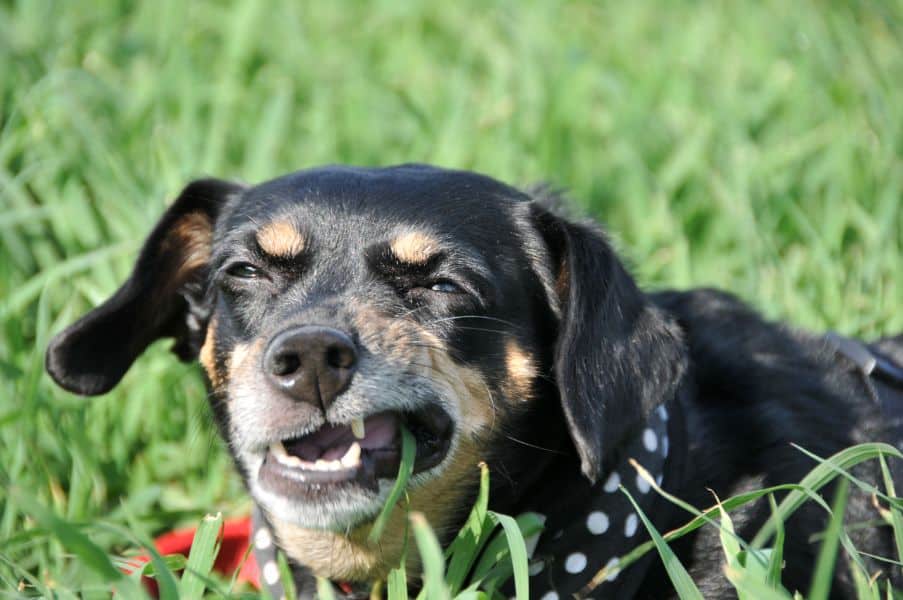My Pet Eats Grass… Are They Okay?

Most pet owners get used to their pets eating weird stuff. Between sticks, socks, rotten food, and waste, we can hardly be surprised by their odd cuisine choices. Of course, we want to be sure that nothing they ingest can cause dangerous intestinal obstruction, or increase choking or poisoning risks. What happens when your pet starts chomping on grass?
But when a pet eats grass as a hobby or habit, does a pet owner need to be concerned?
Eating Grass and Pet Behavior
A pet eats grass for many possible reasons. They may simply enjoy the texture and flavor. They may also do it when they have an upset tummy, as eating grass can relieve constipation or act as a natural emetic. The act of eating grass may ease boredom, anxiety and even stress. Adding a longer walk every day, or increasing play time in the backyard may reduce how much grass your pet eats.
Cats Versus Dogs
Dogs are more likely to munch on grass, as cats are obligate carnivores (they don’t require vegetation to survive). That being said, cats do answer to the compulsion to chew on grass from time to time. They might just like it, but because they often throw up afterwards they could eat it to ease stomach upset.
The Hunter’s Instinct
If your pet is a hunter, they may need a little help with feathers or bones. A pet eats grass after eating a kill in order to regurgitate items that cannot be properly digested.
Alternatively, grass provides fiber that helps move food through the body. Bloating and constipation may be eased after a pet eats grass.
Missing From the Diet
Grass contains folic acid, an essential component for digestion and cell growth. Kittens receive it in their mother’s milk but may not get enough folic acid in their diet as they age. It may be that they eat grass to supplement their nutritional needs.
If you suspect that your pet isn’t getting the nutrients they need from their diet, let us know.
The Mess
There are probably zero pet owners out there that enjoy cleaning up their pet’s vomit, especially if there are long pieces of grass in it. But beyond the inconvenience, is this behavior a threat to their pet’s health?
Grass that naturally grows in or around your pet’s environment probably isn’t toxic. However, if it’s been recently sprayed or treated with fertilizer or pesticides, it is important to steer your pet away from chowing down on it. In fact, it may be best to limit them from even walking on areas of lawn until safe.
When a Pet Eats Grass
Some animals may simply have a fondness for all vegetation. This makes keeping house plants and landscaping greenery a bit complicated.
As a rule, anything that you grow or keep in the house should be pet-safe. If your pet eats grass regularly, be sure that they aren’t extending this behavior to all sorts of other plants. Simply redirect them to healthy vegetation (cats love cat grass!) and always replenish their options.
The Territory
The bottom line is that it’s mostly normal for a pet to eat grass – until it’s not, that is. Vomiting shouldn’t be something that is accepted on a regular basis. If you notice your pet’s behavior is changing related to what they’re eating, our team at Rocklin Ranch Veterinary Hospital is always here for you.

